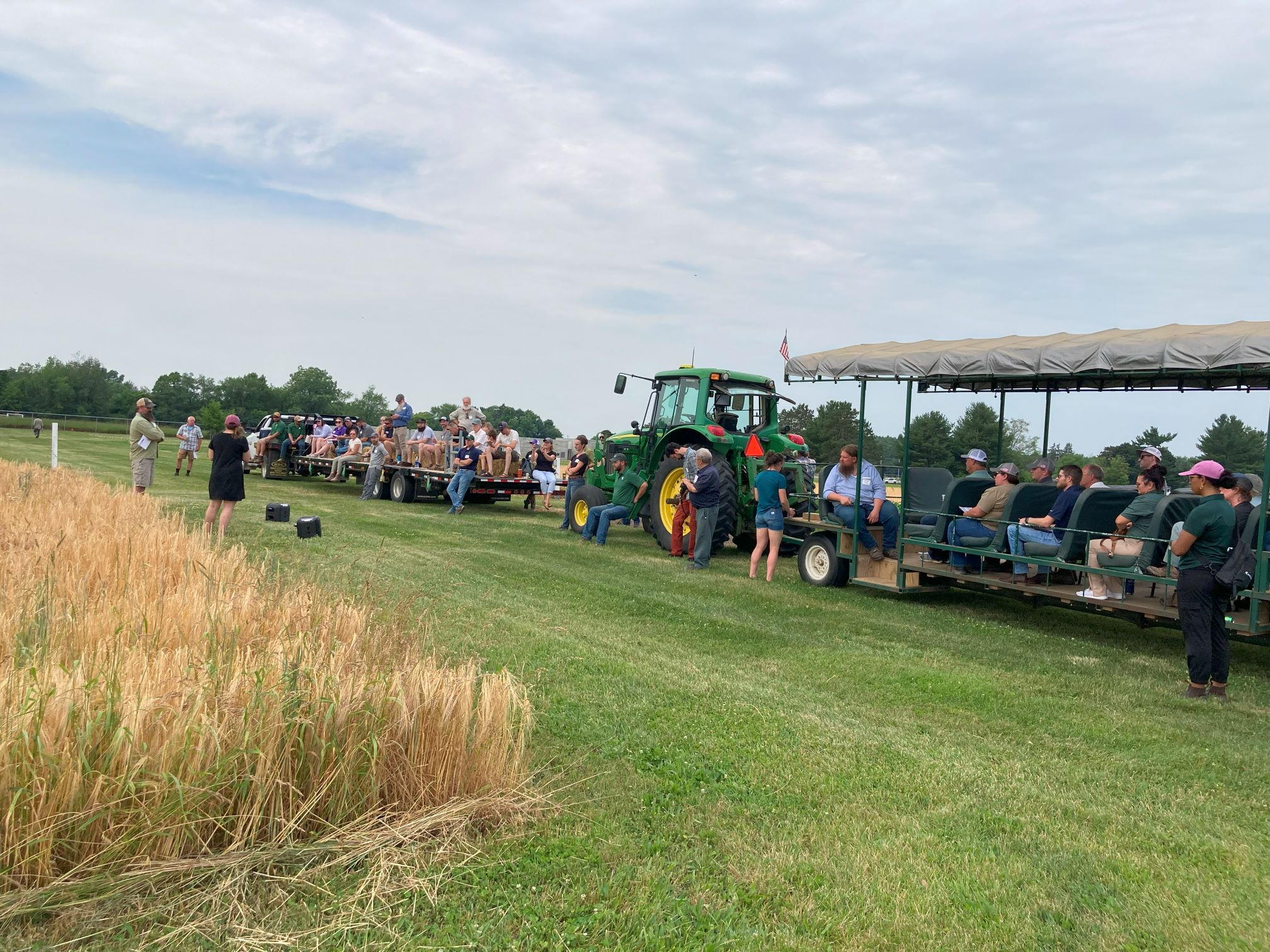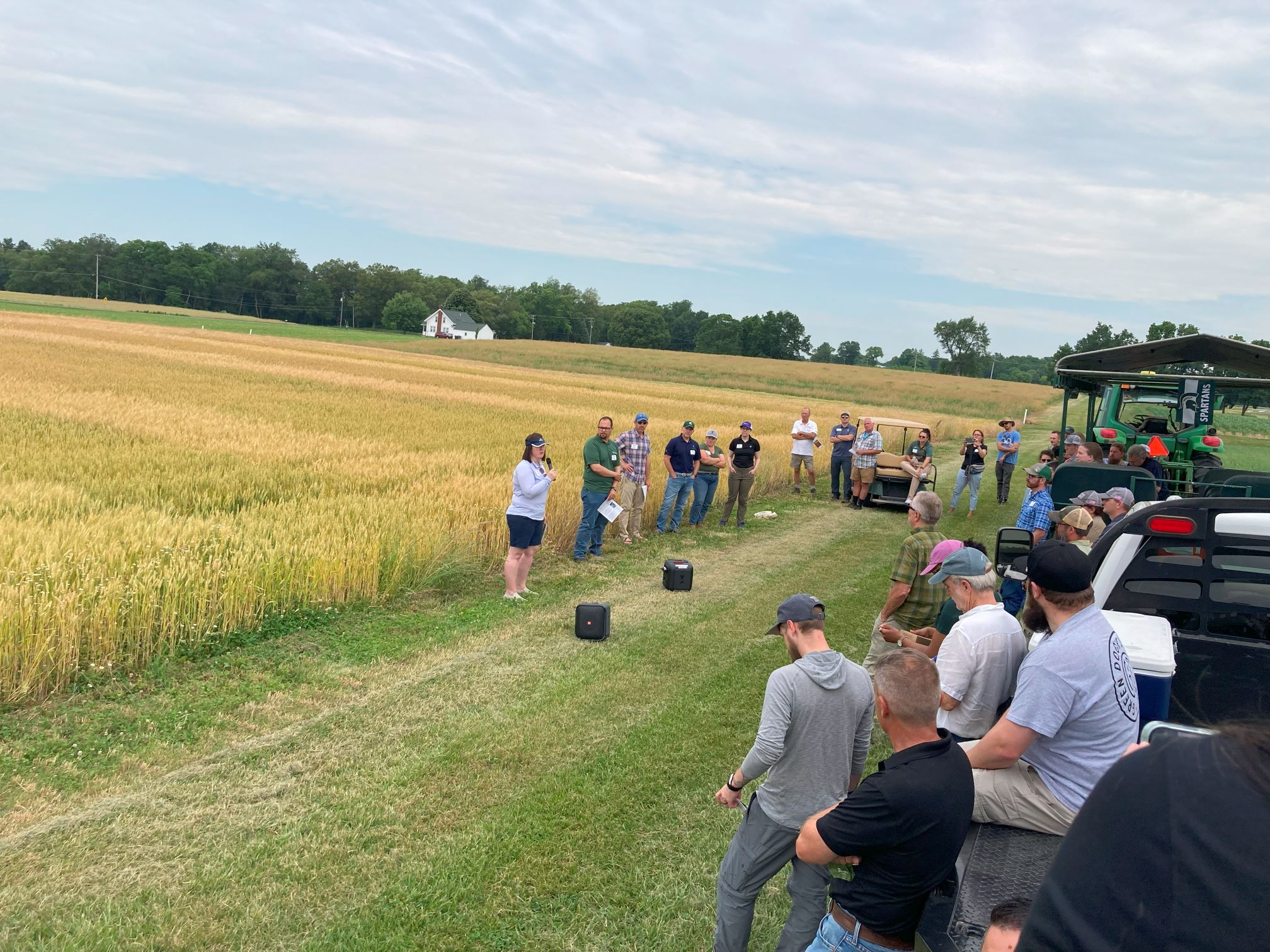Key Takeaways from a Food-Grade Grains Field Day
Participants from across Michigan’s supply chain discussed food-grade grains and the opportunities and challenges going from Field to Mug, Spoon, and Jug.
On June 19th over 60 members of Michigan’s agricultural supply chain gathered at the Kellogg Biological Station Long-Term Agroecosystem Research (LTAR) site to learn about food-grade grains in Michigan. The event was co-sponsored by LTAR, MSU Extension, Star of the West Milling, and Michigan Agriculture Advancement, an organization that seeks to empower and support more sustainable and diversified agricultural systems in Michigan.
The field day featured six crops that are all being researched at the KBS LTAR, including canola, wheat, barley, buckwheat, rye, and oats. Unlike most field days that focus primarily on in-field practices, the day included speakers from all parts of the supply chain, from field to mug, spoon, and jug.

Overarching topics throughout the day included farmers’ challenges in finding and securing local supply chains for their grain, and excitement about the opportunity to build a more resilient Michigan-local food economy. Farmers in the group shared their excitement to grow a crop that they could later see in local products like flours, snack products, beers, and liquors. In fact, the day’s lunch featured buckwheat chocolate chip cookies with flour grown by speaker Ben Reinhart of Firefly Fields farm (made by local catering company Of the Land). When discussing barley, Scott Graham from the Michigan Brewer’s Guild shared his passion for bringing barley back to Michigan. Most is grown out west, but there is a “tremendous opportunity and strategic advantage when you look at the amount of water available in Michigan.” However, this opportunity doesn’t come without its challenges.
.jpg?language_id=1)
Jeff Malkiewicz with the Great Lakes Malting Company shared that malting barley is one of the few grains that needs to be kept viable so it will sprout during the malting process. This means that quality can be a challenge for producers, but maltsters are often willing to pay farmers a premium for high-quality barley. All food-grade grains have a higher-quality standard and, when not met, which can happen due to weather and pest pressure, farmers need to find secondary markets to sell their grain. These less-stringent, but also less profitable markets can include animal feed, cover crop seed, and even grain for mushroom growers (in the case of rye). Making these alternative markets known and available to Michigan farmers can help reduce some of the risk in growing grain crops. As stated by Claire Smith, founder and CEO of Tenera Grains, farmers need to “make sure your supply chain is worked out before you put seeds in the ground.”
.jpg?language_id=1)
Since the event, participants have shared with organizers the value of having farmers, millers, maltsters, brewers, and researchers discuss how they can work together to help make Michigan’s agricultural landscape more diverse, and more supportive of local food economies. There was enthusiastic support for reconvening next year for a Second Annual Food-Grade Grains Field Day.
Other resources:
Photo tour article of the field day here (thanks George Hubka & Farmer's Advance News).
A short list of resources on food grade grains at this link.



 Print
Print Email
Email
